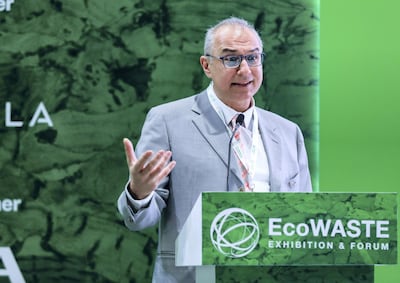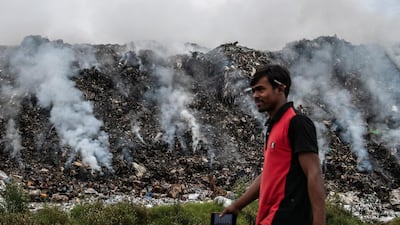Globalisation has had a devastating impact on the environment and the way we dispose of waste is adding to this burden.
Rapid population increase and a rise in consumption has led to growing mountains of rubbish, worldwide.
With limited infrastructure to handle such large volumes of waste, certain countries have turned to dumpsites to store everything from medical waste, to food scraps, electronics and more.
In a report issued by the International Solid Waste Association, a non-profit waste management organisation, it stated that open dumpsites receive roughly "40 per cent of the world's waste" and serve about "three to four billion people".
"According to the UN environment programme, we generate about 20 billion tonnes of waste each year," Antonis Mavropoulos, president of ISWA said.
"Imagine, almost a half of that waste goes to 50 of the world's biggest dumpsites."
These hazardous sites, often in the world's poorest countries, have sparked a global health emergency.
"There are one million deaths per year related to poor waste management, polluted water causing gastric diseases is just one of the health impacts."
Over the years, there has been a substantial rise in unregulated dumping of mobile devices, electronic appliances and medical and municipal waste, which accelerated the threat of health risks.
"The uncontrolled burning of waste releases gases and toxins into the atmosphere.
"People nearby are breathing these in daily."
Since the 1950s, Mr Mavropoulos said global resource consumption has risen dramatically. And in 2017, the world extracted "93 billion tonnes of resources" through processes like mining and deforestation.
And as we extract more resources we create huge environmental impacts.

“Scientists say there are seven different planetary limits that we have to respect, climate change being one of them, but we continue to abuse Earth. Dumpsites play a major role in this.”
As urbanisation and population growth continues, it is expected that millions more people will be served by dumpsites, mainly in the developing world.
"If the situation follows this business as usual scenario, then dumpsites will account for eight to ten per cent of the global greenhouse gas emissions by 2025," said Mr Mavropoulos.
More worryingly, new waste streams created by today's digitisation boom would create complications when it comes to disposing of materials in the future.
"By 2030, the world will produce about 100 million tonnes of e-waste," he said.
"Solar panels that are no longer usable will account for about 80 million tonnes of waste by 2050.
"Additionally, 3.5 million commercial drones will become obsolete in 2050 due to advances in technology."
Adopting sustainable waste management is critical and there would be major climate benefits if major dumpsites were closed.
"We need to find ways to produce less waste. It is that simple."
A worldwide ban on single use plastics, restrictions on exporting and importing hazardous waste and fines for public and private sector companies not practicing recycling could all contribute to a decrease in global waste.
Artificial Intelligence could also help transform the waste management industry.
Municipalities could utilise advanced sensors on household and public bins to collect data. That could then be used to provide in-depth knowledge of the waste stream and consumer behaviours.
"Another is robotic recycling, which is actually a reality," Mr Mavropoulos said.
"It provides more accuracy, better flexibility and is easy to integrate into current business models."


